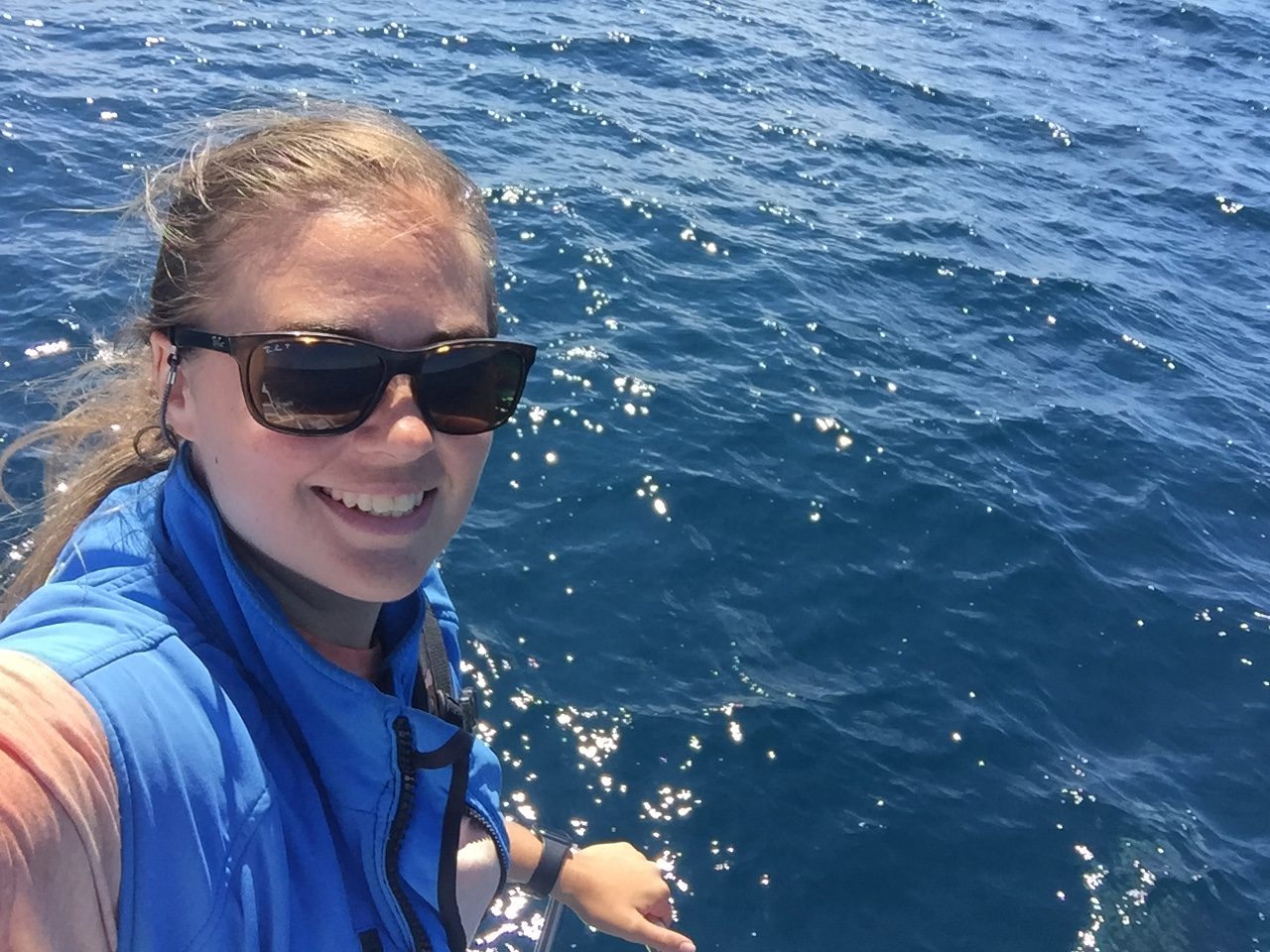Our world-leading marine research underpins a wide range of undergraduate and postgraduate programmes: Research-led teaching | Exeter Marine | University of Exeter. In our Graduate in Focus series we look at the achievements of our MSc graduates who have excelled in conservation around the world since studying with us.
Today we meet Haley Dolton, MSc Conservation and Biodiversity graduate (2018) and now a PhD student at Trinity College Dublin funded by the Irish Research Council!
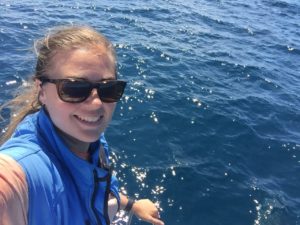
Hi Haley! First off, why don’t you tell us a bit about what you are up to now?
After finishing my studies at the Penryn campus, I was lucky enough to work on a couple of short-term projects with researchers from ExeterMarine. I conducted a literature review on Arctic biodiversity for Prof Brendan Godley and Dr Kristian Metcalfe and I analysed video footage from towed cameras deployed on basking sharks for Dr Lucy Hawkes and Dr Matthew Witt. During this employment, I recorded behaviours displayed by basking sharks and their interactions with each other and the marine environment.
I then worked in the teaching lab setting up experiments and demonstrating in practicals, which taught me a variety of new skills! I also continued to volunteer for local marine groups such as Cornwall Seal Group Research Trust and the postmortem team in the ESI who try to figure out why some marine animals have stranded along the Cornish coastline.
Now, I am a PhD student at Trinity College Dublin. My research focuses on the thermal biology and ecology of Atlantic blue fin tuna, sixgill sharks and basking sharks. I collect data from wild, free swimming individuals by attaching devices that record a variety of different things such as body movements and external temperature. From this data, I hope to find out more about each species and how this new information could potentially inform conservation and policy.
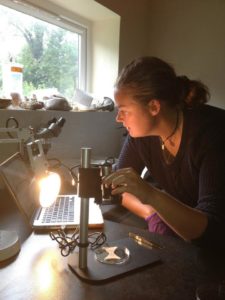
So, what did you enjoy most about studying your MSc?
The best aspect for me about studying at the CEC, were the supportive lecturers, researchers and students. There really was a great community feel and if someone could help you out in any way, they would! Their support obviously covered all things academic, but they also supported me as a person, wanted the best for me and really encouraged me in areas where I felt under-confident. For example, before coming to the University of Exeter, I would never show anyone any artwork I would do, but thanks to their encouragement I started to share things I had created with people which resulted in people requesting drawings, purchasing drawings and designing infographics for marine research groups – all things that I would not have come about without the encouragement of people at ExeterMarine!
The lifestyle the Cornish coast could offer was also amazing and I spent many an hour kayaking, on a SUP or snorkeling! As I mentioned above, I also got in contact with a variety of different marine research groups in Cornwall and volunteered for them – this is something I’d highly recommend to any new student to expand your skill set and to meet some great people!
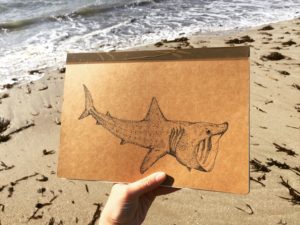
How did the MSc help prepare you for your career in research?
My research project for my masters came about in a slightly unusual way. I had worked in practical marine biology for several years before coming back to education to do my masters degree. I came back to study to learn how to best analyse the data I had been collecting, with one of my main aims being to learn how to use R and GIS (spatial analysis software). Those connections I had made during work with Manx Basking Shark Watch, kindly supplied basking shark location data and allowed me to gain those skills I needed in R and GIS, with great support from my supervisor, Dr Matthew Witt. It was these skills, which helped me to gain employment at the University when I finished my masters.
I also made use of the help offered by the careers service who taught me the skills I needed to gain interviews and through programmes such as the Exeter Award.
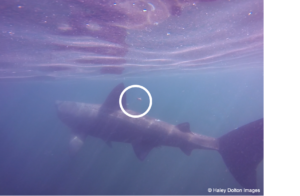
Any advice for someone looking to follow a similar career?
Work hard, be kind and be patient. Some of the best job offers I’ve had have come from connections or the unexpected and left field. Take advantage of any opportunity if you are able to and seek out your own opportunities. The opportunity to attend seminars from guest speakers and to network afterwards, were very useful skills to gain. In fact, it was from networking that I knew of the PhD position I am currently in!
As corny as it sounds, the biggest highlight was meeting and getting to know my fellow students. I have met some of my favourite people from doing my masters and have some truly wonderful memories with them. There’s something very special about living somewhere as beautiful as Cornwall and getting to explore and share all it has to offer with your friends!
Any advice for anyone thinking of applying to the University of Exeter?
Go for it! It’ll be hard at times, but you won’t regret it!
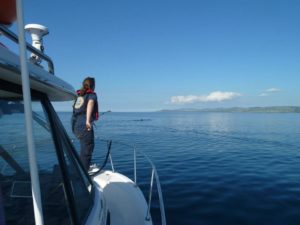
Thanks Haley!
You can follow Haley on Twitter.
If you want to find out more about any of our suite of #ExeterMarine Masters and Undergraduate courses use the links below!
- NEW: MSc in Marine Environmental Management
- NEW: MSc in Marine Vertebrate Ecology and Conservation
- MSc in Conservation and Biodiversity
- MSc in Conservation Science and Policy
- MSc in Evolutionary and Behavioural Ecology
- MSc in Sustainable Development
- MSc in Environment and Human Health
- MSc in Renewable Energy Engineering
- BSc Marine Biology
- BSc Zoology
- BSc Environmental Science
- BSc Conservation Biology and Ecology
- BSc Evolutionary Biology
- BSc Animal Behaviour
- BEng Renewable Energy Engineering

